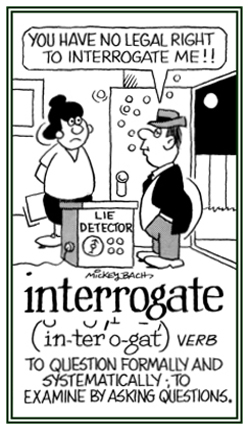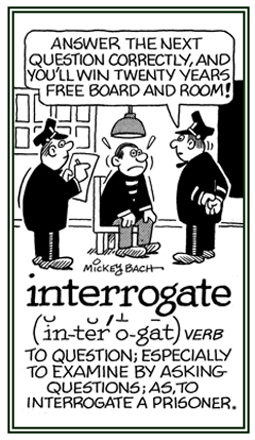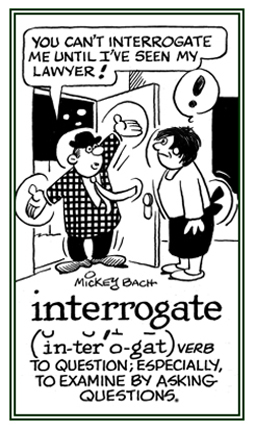rog-, roga-, -rogate, -rogation, -rogatory
(Latin: ask, inquire, request, beg; propose)
The Secretary of State declared that further aggressive action by a certain foreign power would cause the government to abrogate the treaty it had made with that country.
Mr. Jackson and the Board of Directors at the museum decided to abrogate entrance fees for senior citizens.
2. To repeal, to eliminate, or to get rid of something formally and publicly, especially a law: The king decided to abrogate the old law regarding poaching during the summer holidays.The new law abrogated the old law about paying parking fines.
They will be abrogating the decision to increase student grants after the next election.
3. Etymology: from Latin ab-, "away" + rogare, "to ask, to propose".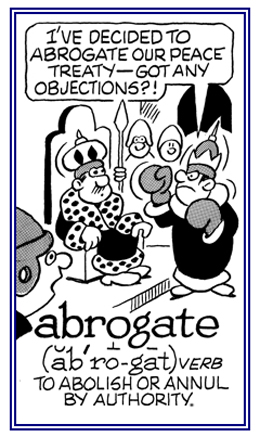
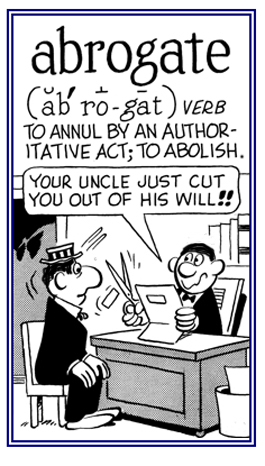

Go to this Word A Day Revisited Index
for a list of additional Mickey Bach illustrations.
2. An official or legal cancellation because of the failure of someone to do what is required: The company lost the government contract when the abrogation of their costs of construction exceeded the limits.
Congress was expected to have an abrogation of the tax law.
2. An offensive display of superiority or self-importance: The group was shocked by the arrogance of Mildred's comments during the meeting.
2. A disagreeable behavior: Henry was asked to leave the room because his arrogancy was offending everyone there.
2. Pertaining to having or displaying a sense of overbearing self-worth or self-admiration because a person believes that he or she is better, smarter, or more important than other people: Hank is the top student in the class, but he has an arrogant attitude when he criticizes his fellow class mates.
Lina is the highest rated student in her class; however, she is not arrogant about it!
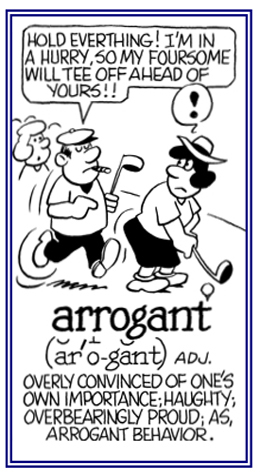
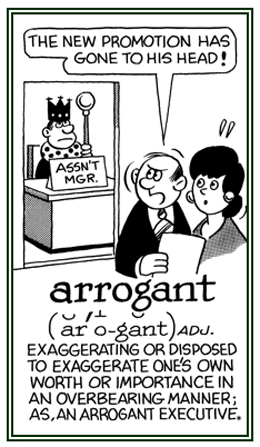
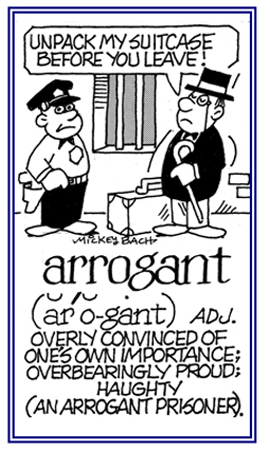
Go to this Word A Day Revisited Index
so you can see more of Mickey Bach's cartoons.
Some presidents have arrogated to themselves the power of Congress to declare war.
2. To assign or to attribute to another person without justification: Judge Hendricks accused Jane of arrogating to herself the power and the right to punish people.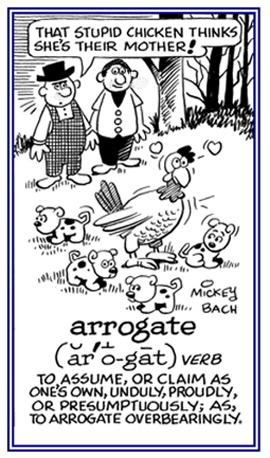
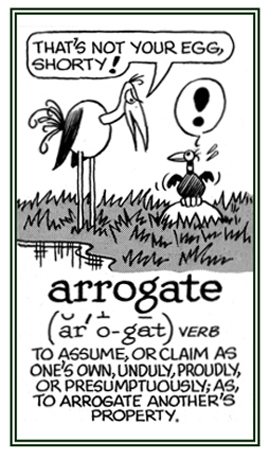
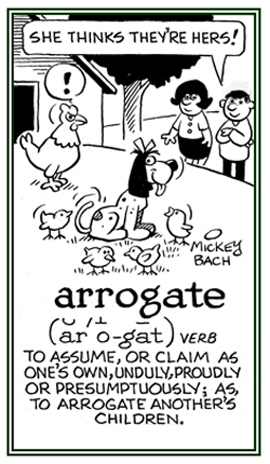
Go to this Word A Day Revisited Index
so you can see more of Mickey Bach's cartoons.
2. The unjust assumption of rights, or privileges, to something of which a person does not have rights for or privileges to: The arrogations of the French aristocracy are said to have helped lead to the French Revolution.
The queen felt that summoning a parliament would derogate her royal authority.
The book derogated the achievements of the former president of the company.
Jim, the coach, derogated just about everything the new player, Dudley, did on the football field.
2. To stray from a standard or expectation; to deviate: Jason committed an intellectual error that will derogate his reputation as a scholar.2. A deviation from a rule or law; especially, one which is specifically provided for: The Senate Committee required new data in order to determine which sectors of the law would qualify for the derogation.
3. The act of belittling, or criticizing, someone or something: Gary, the radio talk-show host, used derogations to discredit the politician's positions on how to improve the nation's economic situation.
2. A reference to tendencies to diminish the merits or reputations of people or things: The Republican candidates have been making too many derogatory remarks about each other which provides the Democrats with all kinds of reasons for the voters not to vote for any Republicans.
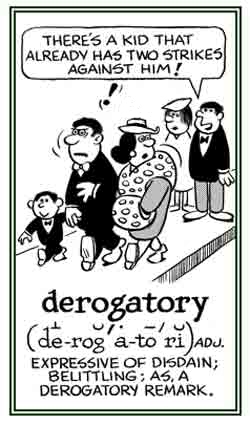
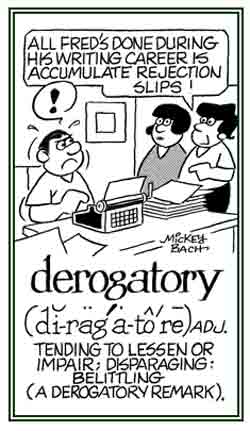

Go to this Word A Day Revisited Index
so you can see more of Mickey Bach's cartoons.
2. A rarely used, nonstandard English-language punctuation mark (‽) intended to combine the functions of a question mark and an exclamation point: The bang in interrobang is a printer's slang term for an exclamation point.
The typographical character resembles those marks superimposed one over the other. In informal writing, the same effect is achieved by placing the exclamation point after or before the question mark; for example, "What?!" or "What!?".
A sentence ending with an interrobang either asks a question in an excited manner or expresses excitement or disbelief in the form of a question: "What? You forgot to put gas in the car?!"
2. To transmit a request to a computer program, or device, for information: Henry's computer interrogated the printer to determine the status of the printing job.
